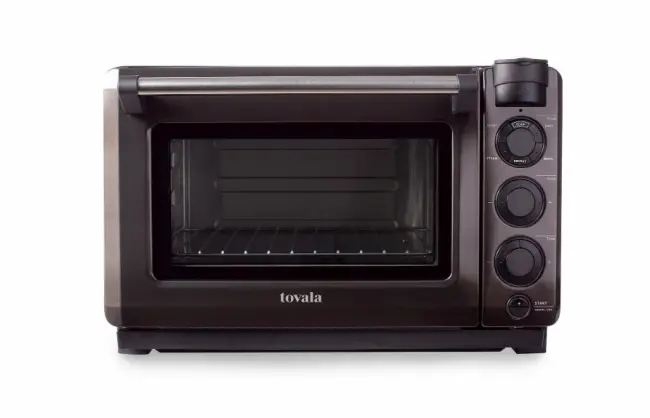Wisconsin Company’s Employees Volunteer to Have Microchip Implants
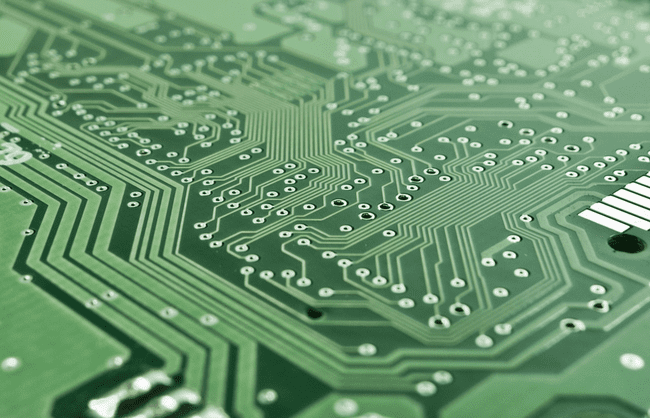
A company in River Falls, WI is the first in the U.S. to allow employees to get microchip implants in their hand. The surgery takes place on August 1, at an inaugural “chip party” hosted by Three Square Market (32M).
CEO Todd Westby says, “It’s the next thing that’s inevitably going to happen, and we want to be a part of it.” And the company itself can benefit from this technology by selling it to their customers as part of their product: break-room marketplaces of vending machines. They make vending machines with credit-card microchip readers, so this is a natural, albeit weird next step for them.
Microchip Technology
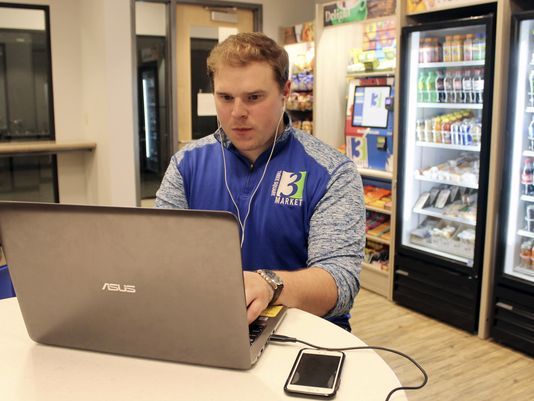
Westby describes one of the situations that the 50 total employee volunteers will experience. “We’ll come up, scan the item. We’ll hit pay with a credit card, and it’s asking to swipe my proximity payment now. I’ll hold my hand up, just like my cell phone, and it’ll pay for my product.”
And naturally, Mr. Westby adds, “[32M sees] chip technology as the next evolution in payment systems, much like micro markets have steadily replaced vending machines. As a leader in micro market technology, it is important that 32M continues leading the way with advancements such as chip implants.” Besides purchasing market items, the chip allows employees to get into the office, log onto their computer, and even use the copier.
32M partnered with Sweden-based BioHax International and CEO Jowan Osterland for this project. The chip will be the size of a rice grain. And it will take only seconds to implant the microchip between the employee’s thumb and forefinger.
The $300 microchip utilizes radio-frequency identification (RFID). The technology uses electromagnetic fields to identify electronically-stored information. Microchips are actually pretty popular in Europe. The chip uses near-field communications (NFC), found in contactless credit cards.
Privacy Concerns
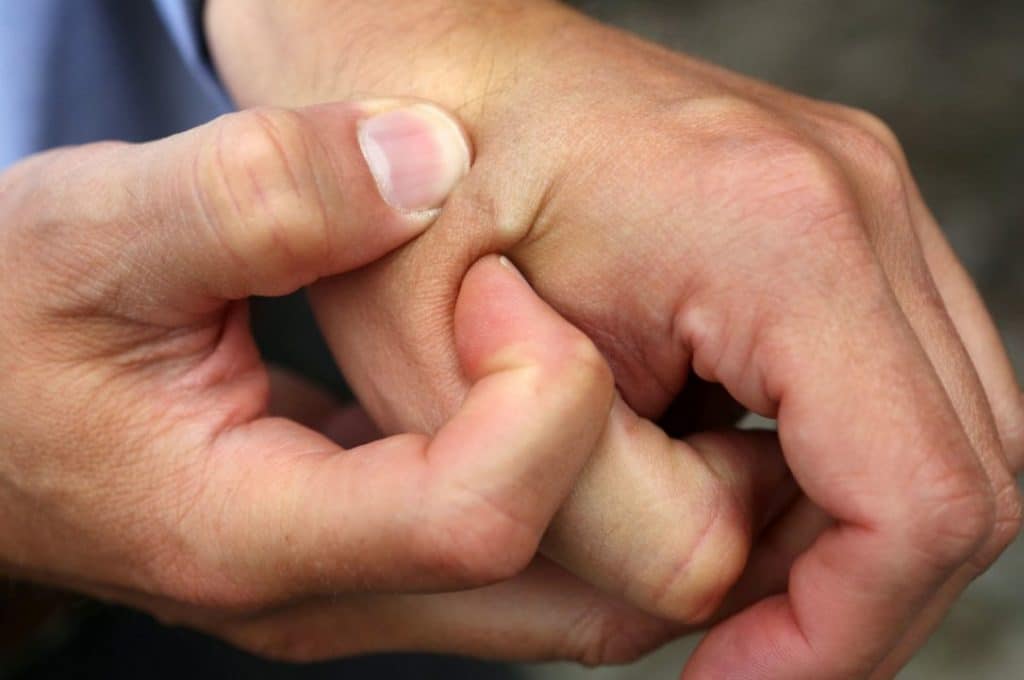
Westby assures everyone that the chip stores encrypted and secure data. “The chip is not trackable and only contains information you choose to associate with it. [It] does not have GPS capabilities.” 32M further says that the chip has been FDA-approved for around 13 years.
But Alessandro Acquisti, a professor of information technology and public policy at Carnegie Mellon University, encourages skepticism. He says ‘encrypted’ is “a pretty vague term. … which could include anything from a truly secure product to something that is easily hackable.”
However, it is not mandatory to get the chip implant. Many employees don’t want microchip implants. 32M offers another option: they can wear the chip in a lanyard or ring.
And the historical achievement of getting microchip implants excites some employees. Software engineer Sam Bengtson says, “It was pretty much 100 percent yes right from the get-go for me. … In the next 5-10 years, this is going to be something that isn’t scoffed at so much, or is more normal. So I like to jump on the bandwagon with this kind of thing early, just to say that I have it.”
The Future of Microchip Implants Economies
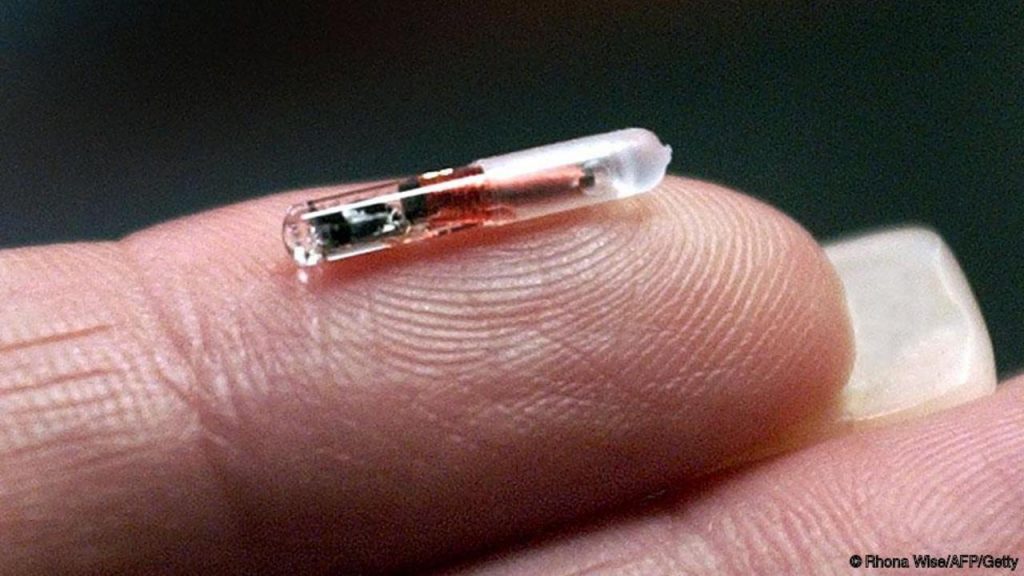
Westby says the company believes the technology behind microchip implants will become ubiquitous soon. “We foresee the use of RFID technology to drive everything from making purchases in our office break room market, opening doors, use of copy machines, logging into our office computers, unlocking phones, sharing business cards, storing medical/health information, and used as payment at other RFID terminals.”
“Eventually, this technology will become standardized allowing you to use this as your passport, public transit, all purchasing opportunities, etc.”
– Westby
32M VP of International Sales, Tony Danna, recalls working in Europe when the idea came to him. “We came across a company of chipped employees at BioHax International and the concept of using RFID with micro markets quickly grew.”
But BioHax wasn’t the world’s first company to microchip their employees. Another Swedish company, named Epicenter, first chipped 150 employees before anyone else in the world.
32M’s COO, Patrick McMullan, urges the historical precedence of 32M’s decision. “The international market place is wide-open. We believe that the future trajectory of total market share is going to be driven by who captures this arena first.”
32M foresees many uses for this technology. It will certainly help the company grow its other self-checkout ventures. McMullan elaborated, “We see this as another payment and identification option that not only can be used in our markets but our other self-checkout / self-service applications that we are now deploying which include convenience stores and fitness centers.”
Combine 32M’s expedited processes around the office with ZEI to boost office productivity and efficiency.
Sources: NPR, PRLog, Asia Times





